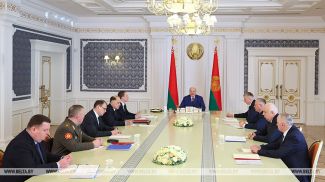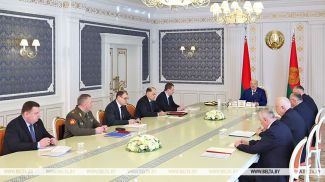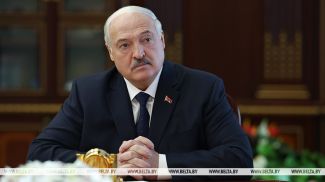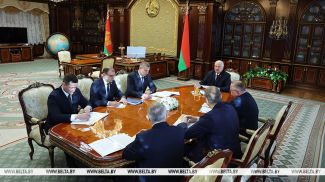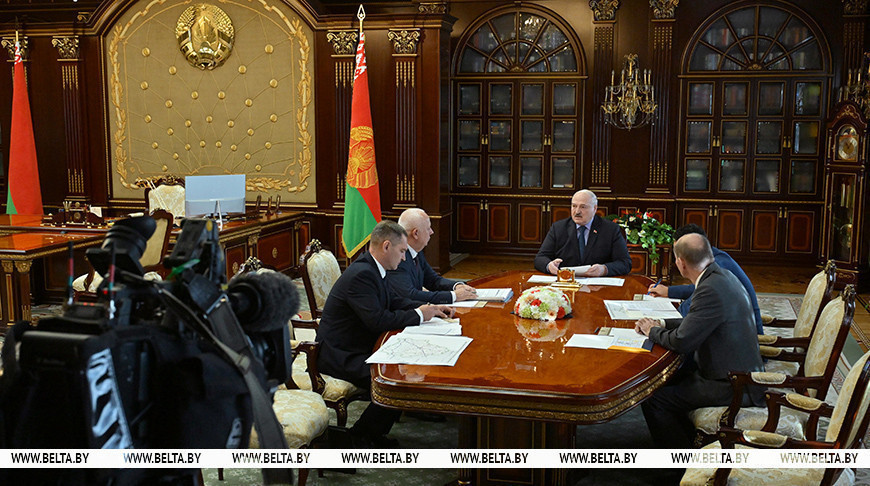
MINSK, 21 October (BelTA) - High-speed railroad lines should be built to connect Minsk with its satellite cities, Belarusian President Aleksandr Lukashenko said on 21 October as he heard out a report on the development of the network of national highways and transport infrastructure to ensure an hour’s accessibility to the satellite cities, BelTA has learned.
“Today I would like to discuss an important matter related to the condition of our highways. One of the main issues is decongestion which major goal is to alleviate the population pressure on the hero-city of Minsk,” Aleksandr Lukashenko said. “I have already reiterated that overpopulation of Minsk works against the people living in Minsk as well as against those who want to move to Minsk.
The head of state cited the Russian capital as an example. According to official data, Moscow is home to about 13.1 million people. However, the real number of people living in the metropolis is 15 million. “Never-ending traffic jams, the need to build a lot of interchanges, roads and so on. Is it good for a person to live in this reinforced concrete 'clothing', and have loads of cars everywhere?” the president said.
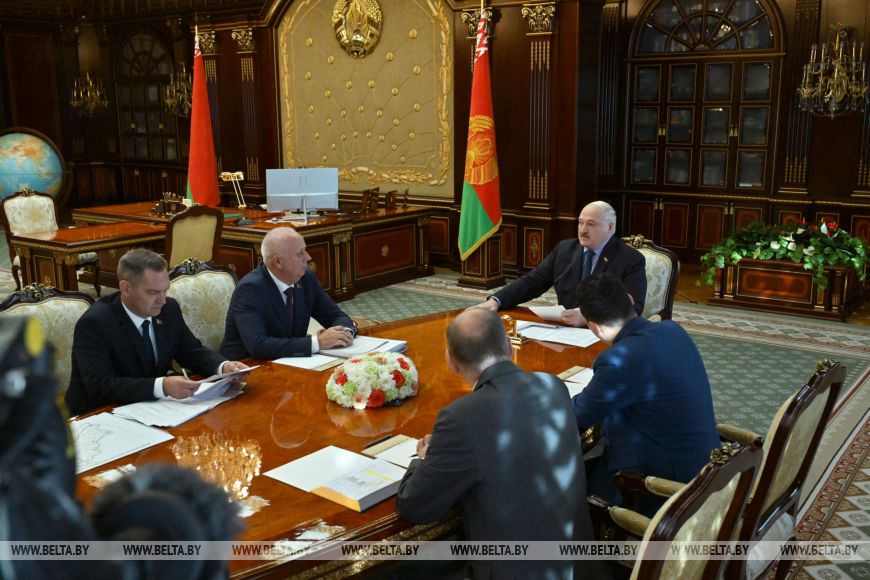
Belarus took a different path by developing the so-called satellite cities of Minsk. Today these are Dzerzhinsk, Zaslavl, Logoisk, Smolevichi, Fanipol and the village of Rudensk. Transport connections to the Belarusian capital from these cities are good, but it is necessary to think about how to make such journeys even faster, the president said. “We need to think about building high-speed sections, independent of highways. I do not think it will require a lot of time and money,” Aleksandr Lukashenko said.
He cited the example of Astana which launched the construction of an above-ground metro many years ago. The city authorities planned to place the railroad lines on reinforced concrete supports. The project turned out to be quite expensive and therefore was suspended. “It is very expensive. Do we need this? We can build an above-ground metro. We will not need to dig underground trenches. We can go to the surface at Minsk borders and reach Smolevichi, Logoisk and so on. I do not think it will cost a lot today,” the head of state said.
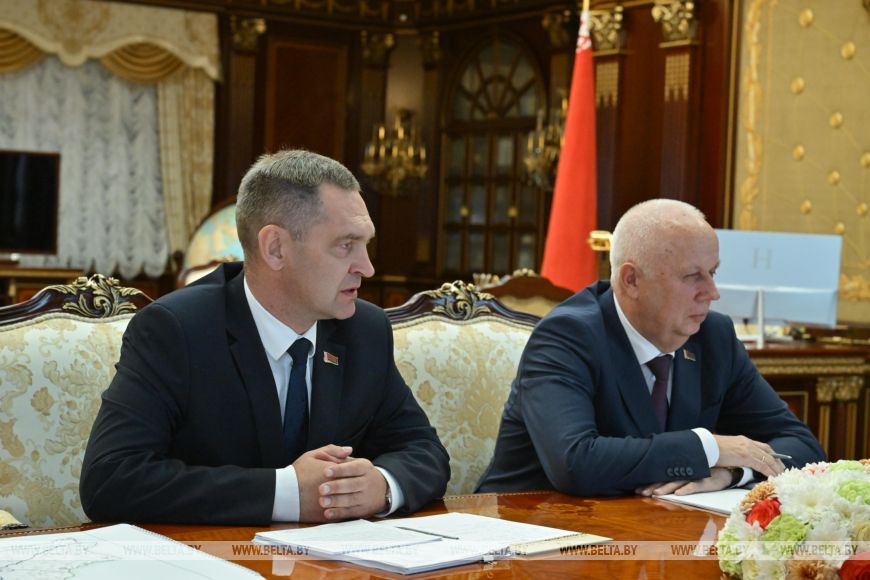
The availability of such a transportation system will be a big advantage for the residents of satellite cities, the president said. “We need to develop highways, railroad lines, other ways of transport connection. The world offers many transport development projects today. We need to move in this direction, and solve the issues of satellite cities, especially of Minsk within the next five-year period. It should be a separate program or a subprogram of the Roads of Belarus program,” Aleksandr Lukashenko said.
“Today I would like to discuss an important matter related to the condition of our highways. One of the main issues is decongestion which major goal is to alleviate the population pressure on the hero-city of Minsk,” Aleksandr Lukashenko said. “I have already reiterated that overpopulation of Minsk works against the people living in Minsk as well as against those who want to move to Minsk.
The head of state cited the Russian capital as an example. According to official data, Moscow is home to about 13.1 million people. However, the real number of people living in the metropolis is 15 million. “Never-ending traffic jams, the need to build a lot of interchanges, roads and so on. Is it good for a person to live in this reinforced concrete 'clothing', and have loads of cars everywhere?” the president said.

Belarus took a different path by developing the so-called satellite cities of Minsk. Today these are Dzerzhinsk, Zaslavl, Logoisk, Smolevichi, Fanipol and the village of Rudensk. Transport connections to the Belarusian capital from these cities are good, but it is necessary to think about how to make such journeys even faster, the president said. “We need to think about building high-speed sections, independent of highways. I do not think it will require a lot of time and money,” Aleksandr Lukashenko said.
He cited the example of Astana which launched the construction of an above-ground metro many years ago. The city authorities planned to place the railroad lines on reinforced concrete supports. The project turned out to be quite expensive and therefore was suspended. “It is very expensive. Do we need this? We can build an above-ground metro. We will not need to dig underground trenches. We can go to the surface at Minsk borders and reach Smolevichi, Logoisk and so on. I do not think it will cost a lot today,” the head of state said.

The availability of such a transportation system will be a big advantage for the residents of satellite cities, the president said. “We need to develop highways, railroad lines, other ways of transport connection. The world offers many transport development projects today. We need to move in this direction, and solve the issues of satellite cities, especially of Minsk within the next five-year period. It should be a separate program or a subprogram of the Roads of Belarus program,” Aleksandr Lukashenko said.




